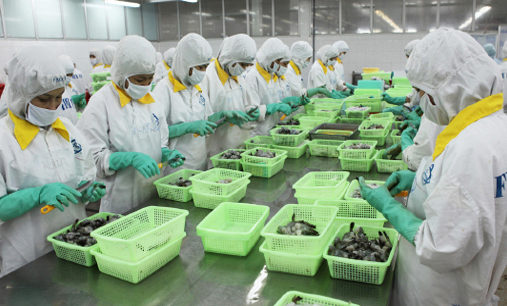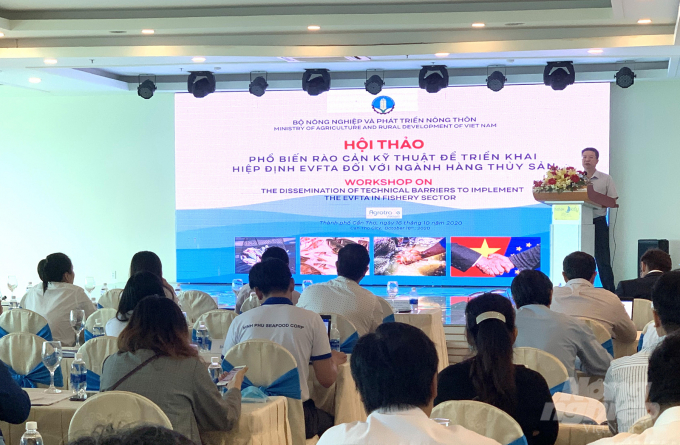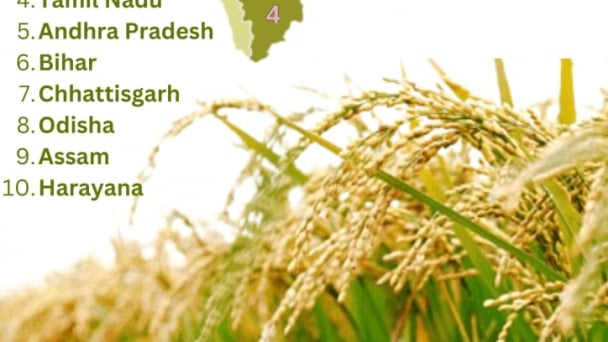June 20, 2025 | 15:31 GMT +7
June 20, 2025 | 15:31 GMT +7
Hotline: 0913.378.918
June 20, 2025 | 15:31 GMT +7
Hotline: 0913.378.918

Vietnam’s shrimp processing for export to EU market. Source: Internet.
On 16 October 2020, in Can Tho city, the Agro-Processing and Market Development Authority organized a Conference on the dissemination of technical barriers to seafood industry for the implementation of EVFTA.
The Conference welcomed more than 150 participants representing international agencies of the European Union (EU) members, ministry-level agencies, local authorities, associations and enterprises in the Mekong River Delta. The Conference is among multiple activities to kick off the action plan for the implementation of EVFTA organized by the Ministry of Agriculture and Rural Development.
Mr. Le Thanh Hoa, Deputy Director of the Agro-Processing and Market Development Authority said, to get ready for the implementation of EVFTA, seafood enterprises have prepared a system of standards, international certificates and updated information on processing and logistics activities…to meet EVFTA requirements.
Vietnam is making the best efforts to remove “yellow card” over illegal, unreported and unregulated (IUU) fishing to regain the world prestige and fulfill the goal to maintain sustainable development of Vietnam’s seafood industry. At the same time, attention should be paid to the prohibition of using antioxident agents to preserve seafood products and highest restrictions should be placed on some seafood products originating from certain pathogenic bacteria.
According to Mr. Hoa, along with price advantage, Vietnamese seafood enterprises will continue to improve their techonology and management to best serve EU market such as applying area codes; ensuring the Aquaculture Stewardship Council (ASC) standards, developing deep-processing products and instant packaged products for household consumption.
Given such circumstances, the Conference is an opportunity for enterprises to get updates on policy changes, new regulations, technical barriers, product traceability and product quarantine for agricultural products exporting to EU market. Enterprises thereby will realize the obstacles to carry out production and processing efficiently, at the same time to comply with market regulations, grasp opportunities and overcome challenges for the implementation of EVFTA commitments.

Mr. Le Thanh Hoa, Deputy Director of the Agro-Processing and Market Development Authority making speech at the Conference. Photo: H.D.
Vietnam has strongly integrated into the world economy by signing bilateral Free Trade Agreements (FTA) and joining multilateral organizations, in which EVFTA is considered as “new-generation” FTAs with intensive and comprehensive commitments. This is the opportunity to deeply engage in the global market of high value and quality. EU consisting of 27 member countries with 511 million people and GDP per capita of over USD 35,000 is a big and high-income market.
According to preliminary statistics, 2 months after EVFTA taking effect, in agricultural sector, exports of many seafood products have gained positive changes in EU market. Total export value of agricultural products from 1 August 2020 to 30 September 2020 is estimated to reach over USD 710 million, increasing by 16.6% and 20.3% in August and September respectively in comparision with July 2020.
Particulary for fisheries sector, major tariff removal of EVFTA is expected to create great opportunities for seafood export. Specifically, EU will remove tariff for 86.5% of Vietnamese seafood exports within 3 years, 90.3% within 5 years and 100% within 7 years. For canned tuna, EU has granted Vietnam a tariff quota of 11,500 tons.
Since August 2020, the number of orders for seafood export has increased about 10% compared with July 2020. By end September 2020, despite negative impacts of Covid – 19 on the global economy, there has been still a rise of 2.48% in seafood production value, and seafood exports to EU market got out of “negative” situation. September has also seen a stronger recovery in seafood export turnover with an increase of 13% equal to USD 92 million, an accumulation of USD 692 million for the first 9 months of 2020.
At the Conference, various opinions from specialized agencies on the potentials as well as difficulties and challenges of Vietnam – EU seafood cooperation were exchanged and analysed, including technical barriers (new regulations on food safety, certification, quality control, traceability, SPS and TBT, origin issues…).
Author: Le Hoang Vu. Translated by Huyen Dan. Edited by: Duc Huy.

(VAN) Last week, the U.S. Department of Agriculture (USDA) released its June World Agricultural Supply and Demand Estimates (WASDE), raising projections for both Indian rice production and U.S. rice imports for the 2025/2026 marketing year.
/2025/06/17/2344-1-131758_261.jpg)
(VAN) Amid tariff risks and growing trade barriers in the U.S. market, Australia is emerging as a promising destination to sustain the growth momentum of Vietnam's shrimp exports.
/2025/06/17/2013-1-nongnghiep-112009.jpg)
(VAN) This notable growth trend reflects the global taste for fresh, nutritious fruits and the expanding use of lychees across various sectors.

(VAN) The political and cultural insulation of Japan’s beloved grain is falling apart, and experts warn the country’s relationship with the staple will have to adapt.

(VAN) Noting risks, report examines impacts of avian influenza, changing trade patterns since 2022, fish fraud, and shipping industry’s net-zero goals.

(VAN) Mr. Tran Quang Bao, General Director of the Forestry and Forest Protection Department, met and worked with the International Wood Products Association to promote cooperation in the field of timber trade.

(VAN) China's outbound shipments of rare earths in May jumped 23% on the month to their highest in a year, though Beijing's export curbs on some of the critical minerals halted some overseas sales.